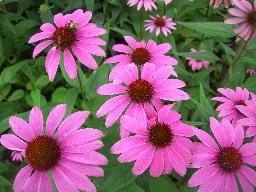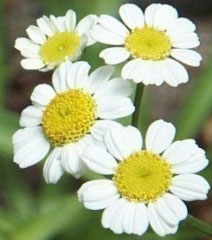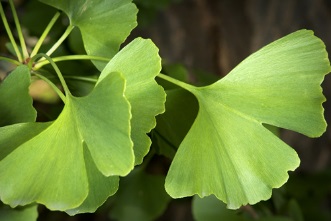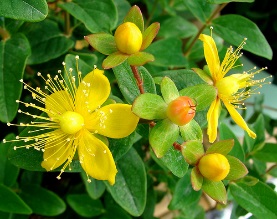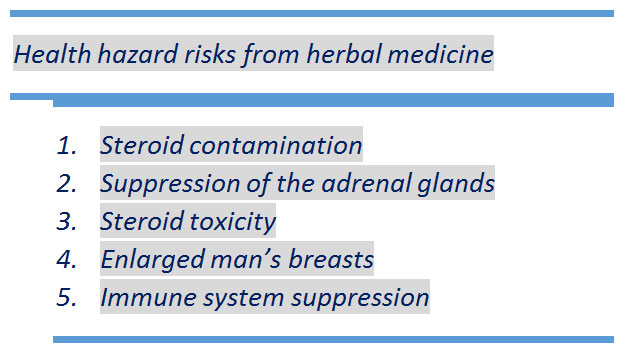What Is Herbal Medicine?
World Health Organisation (WHO) defined herbal medicines as herbs, herbal materials, herbal preparations and finished herbal products that contain as active ingredients parts of plants, or other plant materials, or combinations. Herbal medicine is also known as botanical medicine or phytomedicine.
Why do people use herbal medicines?
- Therapeutic (medicinal)
- Some herbal medicines are proven to treat some medical condition either alone or in combination with conventional medicines
- Traditional or folk medical practices
- Cheaper and more accessible
- Herbal medicines are believed to be cheaper than conventional medicines
- Herbal medicines are easy to find
- “Miracle drug” beliefs
- People believed herbal medicines can cure any disease including cancers and AIDS (Acquired Immune Deficiency Syndrome)
- People believed herbal medicines are less toxic than conventional medicines
- Self-medication
- People believed herbal medicines are useful for disease preventions
- People believed herbal medicines are natural and safe
- Disappointed with the effectiveness of conventional medicines for chronic diseases
Should the patients inform their dentists if they are taking herbal medicines?

The dentist should be made aware of any intake of herbal medicines.
- This is due to the potential side effects of the herbal medicines and possible drug interactions with conventional medicines.
- Some herbal medicines may have adverse effects to the tissues in the mouth.
- The dentist may consider prescribing a different type of medication to the patients to avoid drug interactions
- The dentist may recommend patients with impaired immunity system to seek medical advice from their physician if they are taking herbal medicines.
Potential Drug Interactions of Herbal Medicines with Conventional Medicines
Listed here are the few examples of drug interactions between herbal medicines (available in Malaysia) and conventional medicines (adapted from Abebe, 2003):
|
Herbal medicines (Scientific names) |
Commonly reported uses |
Dental medicines |
Effects of interactions |
| Aloe latex (Aloe vera, Aloe ferox) | Laxative, topical applications for wound healing, burns, skin conditions | Steroid medicines
Multiple oral medicines |
Cardiovascular hyperactivity (abnormal rhythm, hypertension)
Reduced effects of drugs |
| Chamomile (Matricaria recutita, Chamaemelum nobile) | Used to relieve muscle spasms, mild sedative, wound healing | Aspirin
Sedatives |
Increased risk of bleeding
Increased sedative effect |
| Echinacea (Echinacea angustifolia) | Antimicrobial, immune stimulant, for colds, flu, eczema and upper respiratory infections | Ketoconazole, acetaminophen | Liver toxicity |
| Evening primrose (Oenothera biennis)3 | Used for the treatment of premenstrual syndrome and symptoms of menopause | Aspirin
Steroid |
Increased risk of bleeding
Increases steroid activity/toxicity |
| Garlic (Allium sativum) | Antihypertensive, antioxidant, for people with high cholesterol, antimicrobial, for cancer prevention, colds, flu and diabetes | Aspirin
General anaesthetic |
Increased risk of bleeding
Increased risk of bleeding (after surgical procedures) |
| Ginger (Zingiber officinale) | Control vomiting, for sore throat, migraine, antioxidant, anti-inflammatory, for indigestion | Aspirin | Increased risk of bleeding |
| Ginkgo (Ginkgo biloba) | To improve memory and brain function, for general cardiovascular health, antioxidant | Aspirin
Acetaminophen plus caffeine plus enfotamine |
Increased risk of bleeding
Brain hemorrhage |
| Ginseng (Asian and/or American ginseng) (Panax spp.) | To enhance endurance, vitality, adaptation and immune system; for stress Used to treat diabetes (type 2) |
Steroid medicines
Aspirin |
Increases steroid activity/toxicity
Increased drug effect |
| Green Tea (Camellia sinesis) | Laxative, for cancer prevention, for heart, liver and dental health | Atropine (taken orally) | Decreased drug effect |
| Senna (Cassia senna) | Laxative | Steroid medicines (taken orally) | Decreased drug effect
Increased cardiovascular hyperactivity/toxicity |
| St. John’s wort (Hypericum perforatum) | For mild to moderate depression, insomnia, for wound healing, bruises and anti-inflammatory | Tetracycline
Benzodiazepine |
Increased sensitivity to light (photosensitivity)
Increased sedative effect |
Oral Effects of Herbal Medicines1
|
Herbal medicines |
Oral Effects |
Image of the herb |
| Echinacea (Echinacea angustifolia) | Tongue numbness |
|
| Feverfew (Tanacetum parthenium) | Oral/aphtous ulcers, lip and tongue irritation and swelling
Increased gingival bleeding time |
|
| Ginkgo (Ginkgo biloba) | Prolonged bleeding during gingival injury |
|
| St. John’s wort (Hypericum perforatum) | Dry mouth |
|
Health Hazards from Using Herbal Medicines
Some people think herbal medicines are safe because they come from natural sources. However, some of the herbal medicines are adulterated to increase their effectiveness. Some of the herbal preparations are contaminated with corticosteroids during its handling.
Some topical herbal creams for example containing 0.75mg dexamethasone acetate (a corticosteroid) would lead to suppression of the adrenal glands and steroid toxicity. Adrenal glands produce most of the hormones in the body including steroid hormones, mineralocorticoids, glucocorticoids and androgens.
Some herbal preparations containing estrogen-like (a female hormone) substances may lead to enlarged man’s breasts (gynaecomastia). Some herbal medicines containing steroids may suppress the immune system, causing recurrent infections2.
In conclusion, it is important to let your dentists know that you are taking herbal medicines or any supplements. The dentists will be able to check for the drug interactions and watch for any adverse effects to your oral tissues.
References
- Abebe W. (2003). An Overview of Herbal Supplement Utilization with Particular Emphasis on Possible Interactions with Dental Drugs and Oral Manifestations. The Journal of Dental Hygiene,77(1),37-46
- Little JW. (2004). Complementary and alternative medicine: Impact on dentistry. Oral Surgery, Oral Medicine, Oral Pathology, Oral Radiology and Endodontology, 98(2), 137-145
- Niggeman B. and Grüber C. (2003). Side-effects of Complementary and Alternative Medicine. Allergy, 58, 707-716
| Last Reviewed | : | 11 August 2016 |
| Writer | : | Dr. Wan Syasliza bt. Mohamed Thani |
| Accreditor | : | Dr. Norjehan bt. Yahaya |



